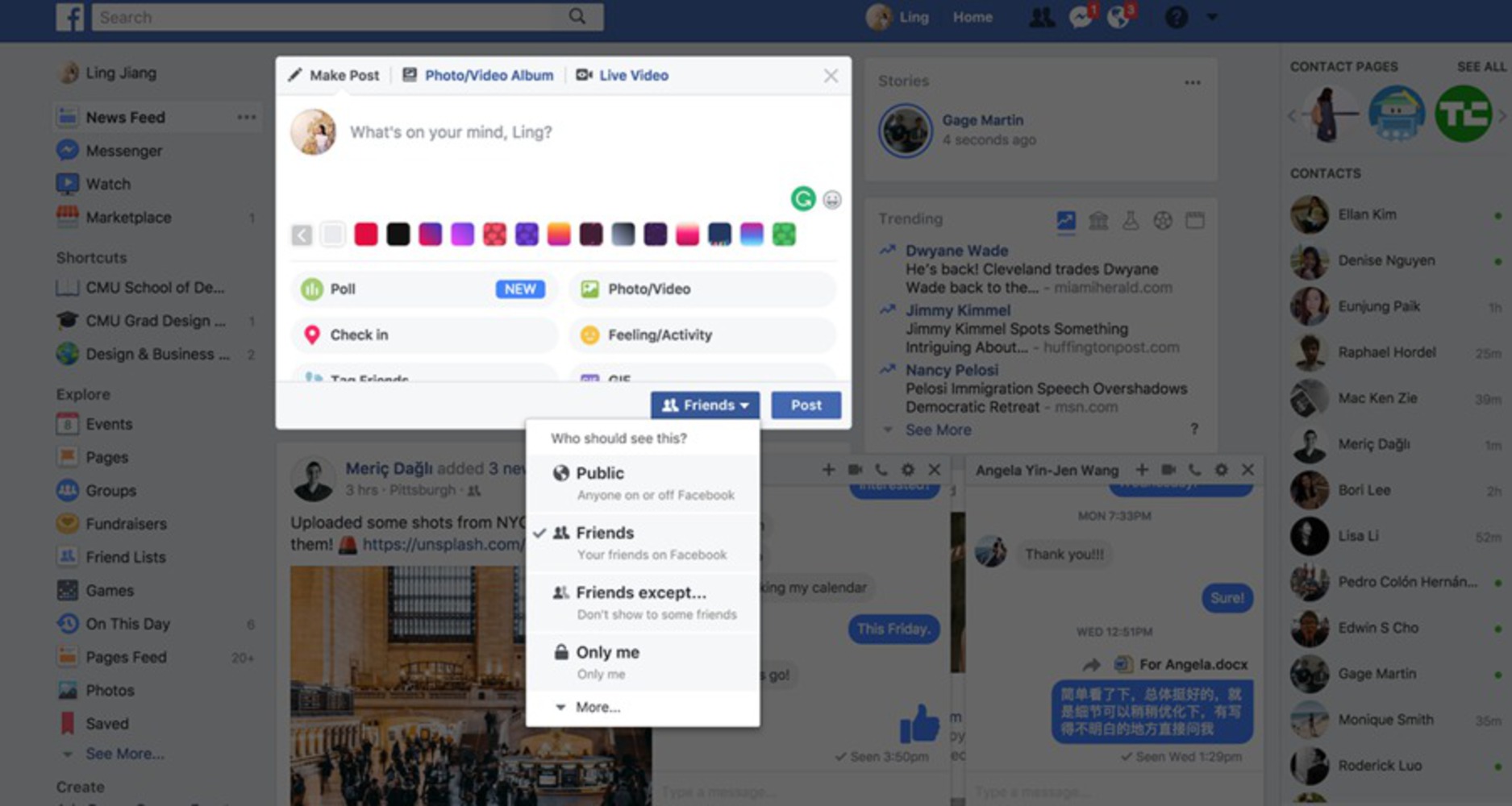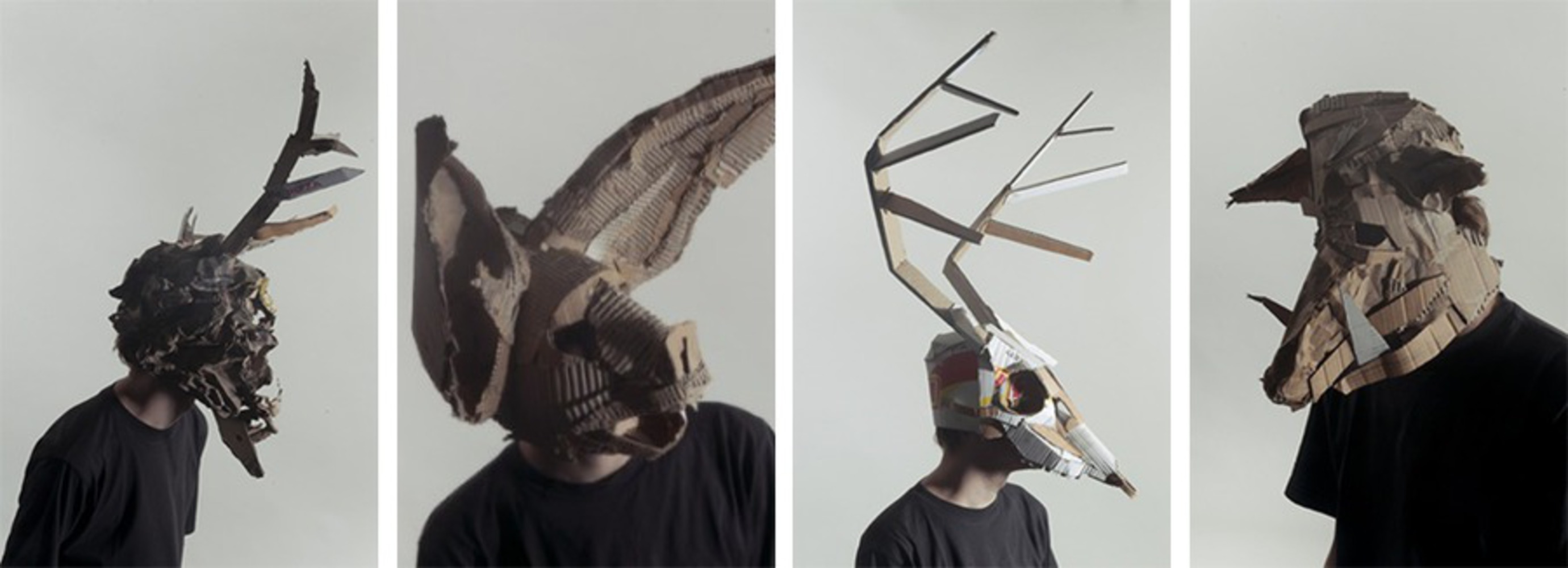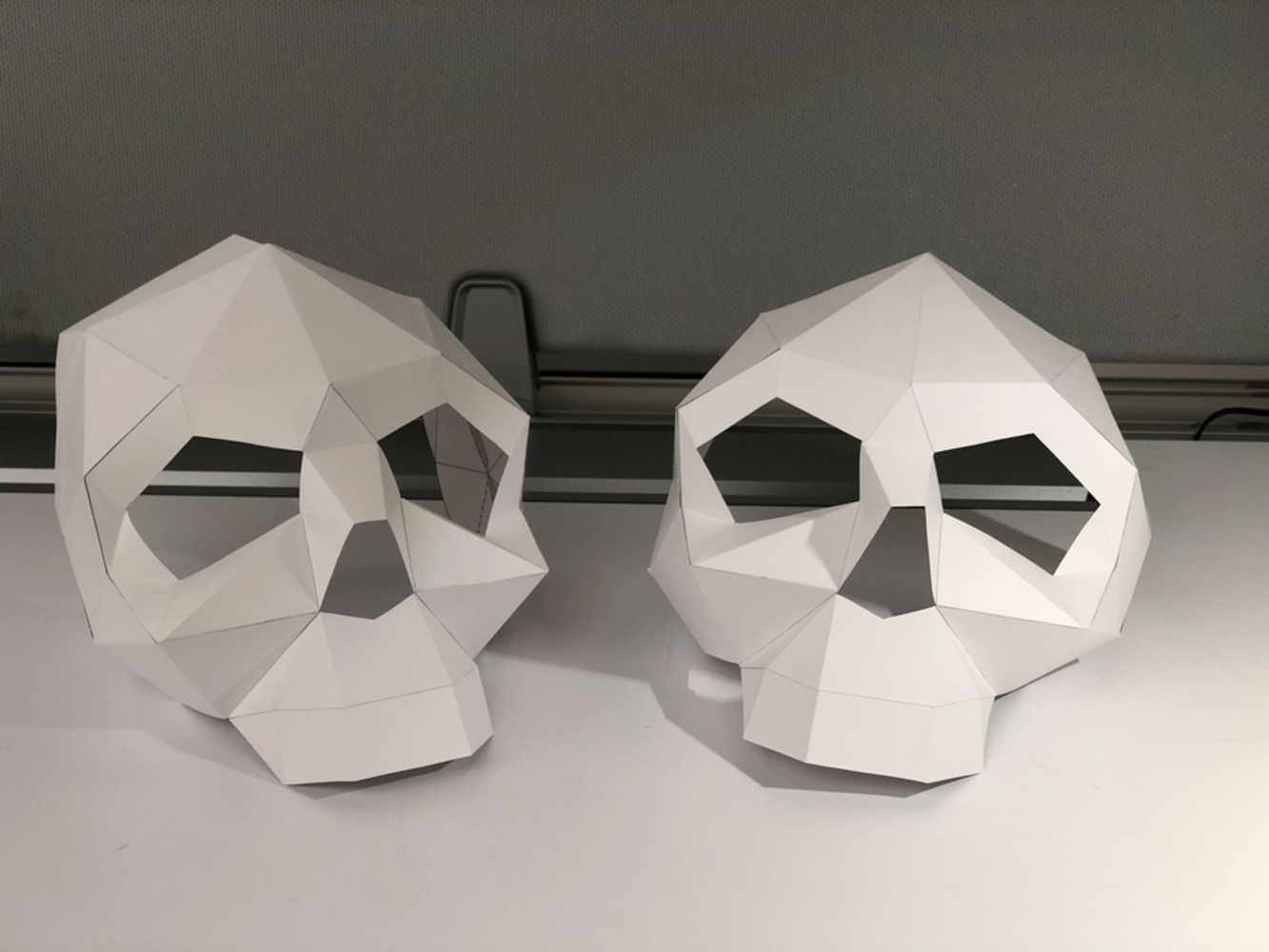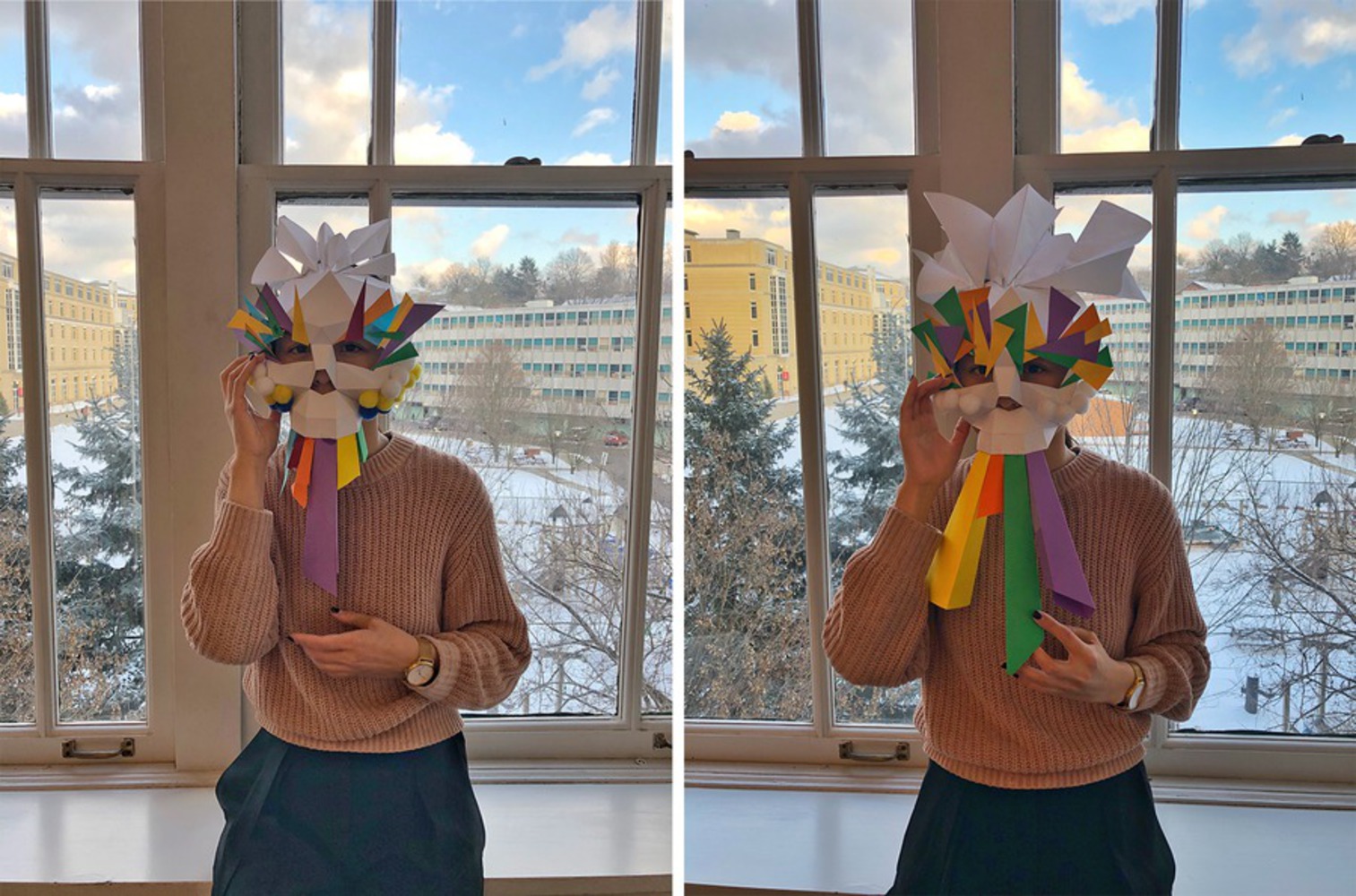A device will create physical representations for the different impressions a user gave to his/her different groups of friends. A Facebook user’s timeline will be separately valued according to the visibility of these friend groups. For the feeds which can be seen by one specific group, they will be valued through some dimensions while a device creating a physical representation. The dimensions may include the number of feeds, keywords of the content, people’s facial expression in the images, comments and the number of likes. The physical representation might be a painting on a cardboard mask frame. The measurements of the feeds will decide the visual elements in the painting, such as colors and shapes. After using this device for a while, several cardboard masks will be generated. The user can put on masks which are made from the cardboards and experience how different his/her is for different groups of friends.




